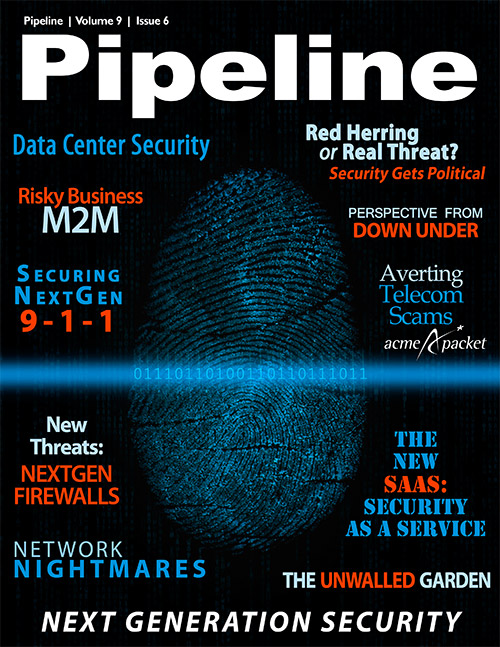Red Herring or Real Threat? Security Gets Political
Huawei has also lost opportunities in the U.S., not the least of which was a partnership with Symantec because the security organization feared losing access to classified information about cybersecurity threats if it continued to deal with the Chinese company.
In a recent editorial published in a Communist Party tabloid, Commerce Ministry spokesman Shen Danyang said the congressional committee’s report “violated [the U.S.’s] long-held free market
principles and will undermine cooperation and development between the two countries.” Meanwhile, both ZTE and Huawei interpret the move as a way to lock them out of the most lucrative market on
the planet.
“The report released by the Committee today employs many rumors and speculations to prove non-existent accusations,” Huawei spokesman William Plummer said in a statement. “This report does not
address the challenges faced by the ICT industry. Almost every ICT firm is conducting R&D, software coding and production activities globally; they share the same supply chain, and the
challenges on network security is beyond a company or a country. The Committee’s report completely ignored this fact. We have to suspect that the only purpose of such a report is to impede
competition and obstruct Chinese ICT companies from entering the US market.”
Nonetheless, the committee and the FBI are undaunted, and in fact are pushing ahead with a second phase of the investigation. A staff member of the House Intelligence Committee told Reuters it
has received “dozens and dozens” of calls from current and former employees, not to mention customers, of the Chinese firms with reports of their nefarious activities.
“I don’t think the companies should expect our attention to stop,” said the staff member, who was not authorized to speak publicly on the matter.
In a global market it would seem utterly impossible to lock an economy as large as China’s out of U.S. telecommunications technology altogether. But as the House Intelligence Committee continues
to investigate the activities of these Chinese companies — and either intentionally or unintentionally chooses the industry’s winners and losers in the process — the U.S. government starts to
look more and more like China’s. There is no denying the national interest in building a secure, robust telecommunications infrastructure, but what is emerging is a stark politicization of
telecommunications networking on a remarkable scale that will inevitably send shock waves through industries and economies around the world.
And you can be sure, as the political season reaches its inevitable boiling point leading up to the November elections, that this story will stay in the headlines. Unfortunately for the
telecommunications industry as a whole, the aftermath may be confusion and chaos in a sector that should be focused on innovation and the customer experience rather than political theater.
The White House denies that the yearlong investigation and congressional report is aimed at specific businesses. “We have a process that is not aimed at one specific company, but, using all the
assets and parts of U.S. government, aimed at protecting our telecommunications and critical infrastructure,” a senior White House official said. But only time, and perhaps the pending election,
will truly tell.
During the last presidential debate of the 2012 campaign, discussions about Chinese industry copyright and patent infringement, artificially suppressed prices, and of course, security were heated
topics of discussion. Telecommunications is an industry that crosses all three of those areas of American interest and will remain a highly politicized and scrutinized sector as it relates to
Chinese trade and competition. With both presidential candidates vowing an increasingly tougher stance on Chinese trade, regardless of the election's outcome, it's clear the eyes of America will
remain fixed on China's every move, and with it, ZTE and Huawei will remain in the glare of the klieg lights of American politics.



















